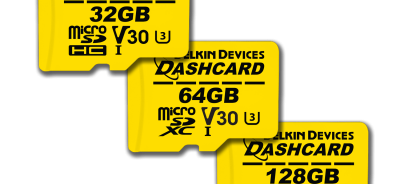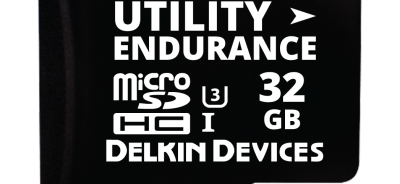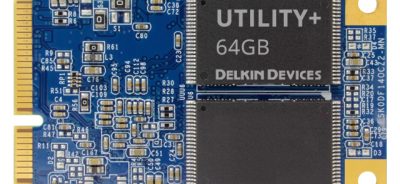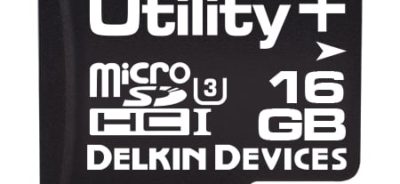Our Technical Success Stories: A Look at SMART Triggers
No matter how high-quality or well-optimized your embedded storage is, it will eventually reach the end of its life cycle. If you’re not ready for it, the end of a life cycle can compromise functionality and data integrity, creating problems for your consumer, as well as your business and its revenue. With the right preparation, however, you can maximize your flash storage’s life cycle while ensuring enough notice ahead of time when it comes time for the flash storage solution to be switched, and SMART commands in Flash storage can help.
Here at Delkin, we make it easy for you to maximize your flash storage’s life cycle through various cutting-edge methodologies that effectively deliver a solution to meet your OEM application requirements with ease. At Delkin Devices, we’re the leading provider in quality flash storage solutions and SSD drives for industrial embedded OEM applications. Not only are our USA-designed storage devices of top industry quality, but we also provide customized solutions to meet your OEM application’s unique needs.
Part of Delkin’s world-class, comprehensive assistance is our customer applications support team, which provides skillful aid across all ends of the process. This includes applications and engineering support, unique product customization, and last but not least, life cycle management and help with extending your product’s life cycle to both save costs and secure data integrity.
Predicting the end of a product’s life span is crucial to ensuring a seamless transition to the next one. That’s why Delkin’s life cycle management support services will anticipate failures ahead of time, and prevent data loss and other costly incurrences from occurring, which is critical for OEM applications.
To do so, Delkin monitors the SMART commands found in industrial-grade removable storage to improve the OEM’s capacity to detect failures, minimize downtime, and schedule preventive maintenance measures in a more efficient manner. You can find SMART commands across a series of different form factors, such as SD, CF, SSD, and CFAST cards, for example. When these SMART commands are used beyond their initial evaluation stages, instead of being applied directly into the embedded host’s application, this allows for high predictability levels that safely and effectively prevent data loss incidents from happening.
The Customer Story
Unfortunately, in the digital signage industry, an embedded storage data loss is immediately noticeable by both the business and its customers. The digital signage business overlaps a series of different industries, including retail, traffic safety markets, and events planning (e.g. stadiums and other large meeting places). When flash storage in digital signage applications run out of their life cycle, blank screens or error messages will be displayed instead of the needed signage. In some businesses, these problems can result in loss of revenue or even safety hazards. For this reason, digital signage OEMs need to be particularly attentive regarding the preventive measures—including routine maintenance—to ensure no data loss happens at a critical time.
A product manager at a leading digital signage OEM stated, “We really cannot have a card, no matter how old, lose data in the field unexpectedly. We figured industrial-grade products would outlast our hardware. Our thinking was that if we used these industrial compact flash cards in our field installed base, they were more robust, and we would experience less unexpected failures.” The product manager continued to explain, “We wear cards out, but unexpected data loss on our product is very expensive. Is there a way to predict the end of a card lifespan before it happens?”
Delkin’s Discovery
In order to resolve the above problem, the first step for Delkin’s customer application support team was to gain a full scope of understanding of the customer’s main requirements. Our expert team began examining the usage models of the cards in order to determine which indicators showed up as the card wore out over time. The information this provided was then used to estimate both the flash card’s life cycle endurance as well as its useful life.
Because the customer was so negatively affected by the unexpected failure, they preferred to swap out cards with as much as 15% of their useful life cycles remaining to avoid risking any more disasters. This decision actually allowed the Delkin team enough time to complete preventive maintenance checks at the same time as other maintenance runs, meaning that the customer didn’t lose much revenue in the process.
With the consistent improvement of CPU technology and flash storage solutions throughout the years, a controller that was released on the market even just five years ago could be considered obsolete, lacking the tools and features that more modern models offer. With the introduction of SMART tools, embedded card users finally had access to much more card data and health information, featuring accurate card life cycle information so companies could plan accordingly. For the first time, this information was easily accessible and could be obtained within the OEM host applications themselves.
The SMART commands Delkin’s application team used provided them with critical card information such as P/E cycles per block, the number of bad blocks and spare blocks that remained, and the number of normal versus abnormal startups on the card. In addition to much other information, this provided the OEM a chance to understand the card’s health effectively and thereby predict its longevity.
The Delkin SMART Solution
Thanks to the data provided by Delkin, the customer successfully programmed their application to run SMART evaluations regularly on their cards to determine their flash endurance and remaining life cycles. The host was able to notify the customer when it was reaching the requested 85% mark through five critical card usage statistics and assessing them against the established maximum. While this process would typically take years, this new tool almost fully stopped data loss from occurring unexpectedly. Additionally, the card could now note if it was being worn abnormally through damage or unusual functioning, while simultaneously warning of heat or power issues.
Final Thoughts
When choosing an industrial storage solution for industrial embedded applications, you must consider your host requirements—above all reliable life cycles—along with other factors like size and cost.
You can trust Delkin’s customer applications team to provide expert, personalized care for your OEM application. Contact us today to learn more.
ORDER DELKIN INDUSTRIAL FLASH STORAGE TODAY through our distribution partners:
For Europe Contact Our Partner Farnell
 Login
Login Register
Register












